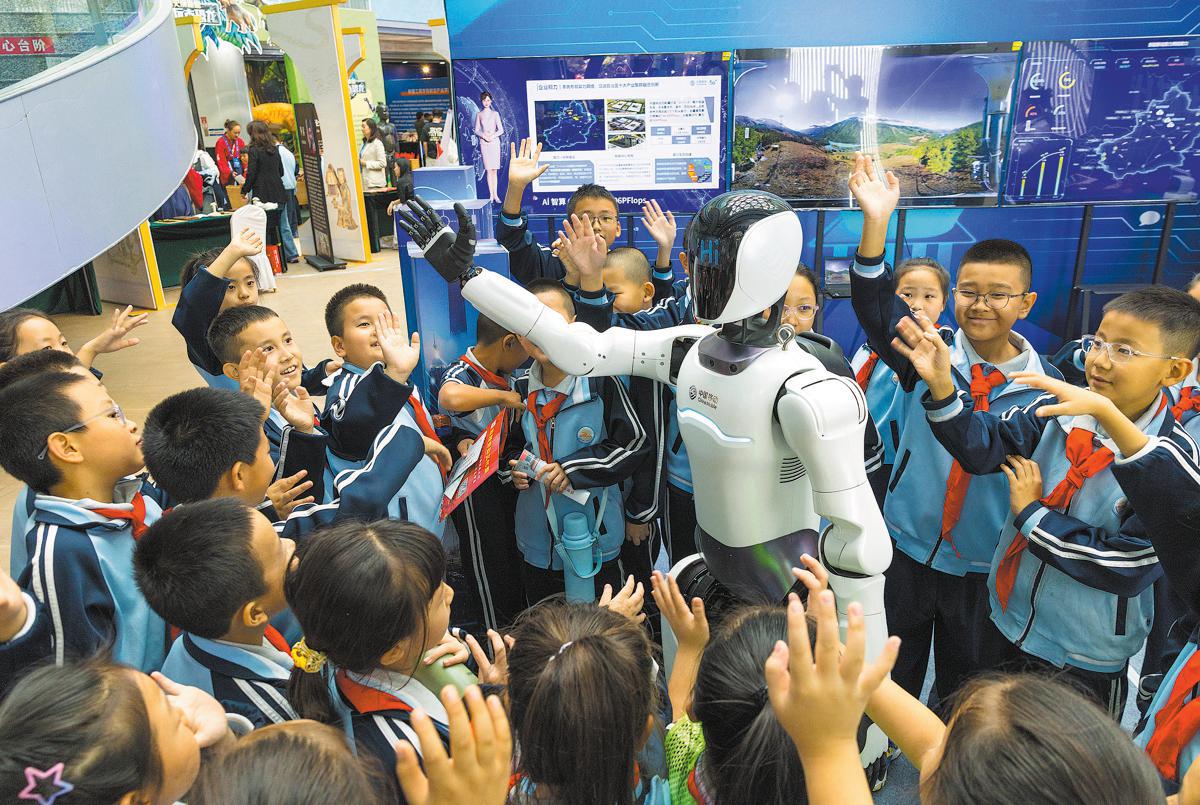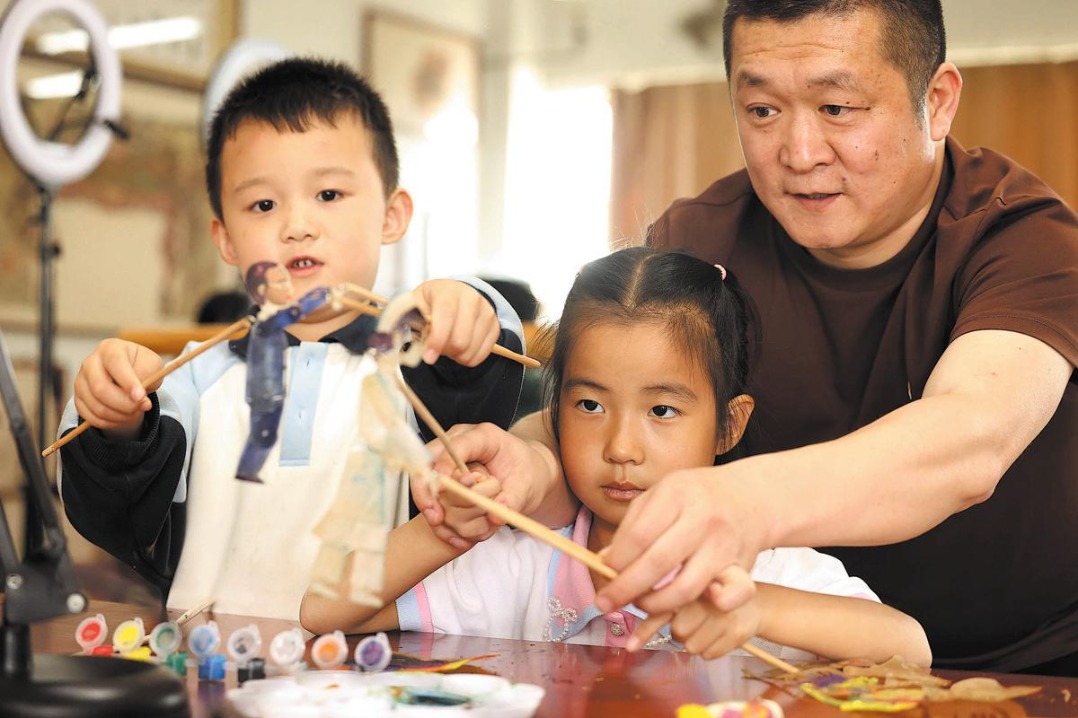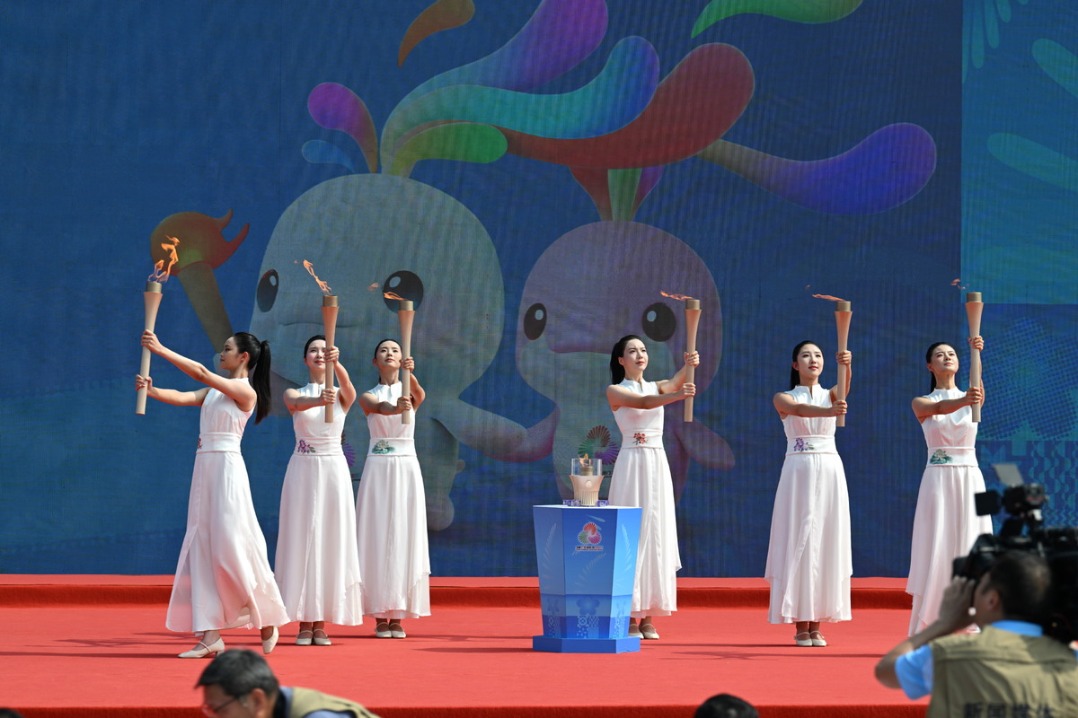Xinjiang encourages kids to get excited about science
China holds first national popularization month dedicated to scientific endeavor


The five-story museum includes themed halls such as the "Miracles of the Oasis" and "Secrets of Science". Interactive exhibits allow students to experience scientific principles firsthand, such as how sound waves are transmitted or how leverage works.
"By connecting scientific principles with textbook knowledge through hands-on experiences, students grasp concepts more firmly," Wang said.
The museum has partnered with more than 66 schools to serve as a "second classroom" to supplement school education and enhance science teaching.
The China Science and Technology Museum in Beijing has donated a "digital museum assistant" to the Kashi Science Center. The virtual guide was generated by staff member Gulnur Memet and offers interactive responses to visitors through a mobile app, providing real-time information on exhibits, scientific principles and directions.
"When we first opened, few people knew what a science museum was," Wang said. "But now, the museum has become a science education landmark for Kashgar. The city is no longer just known for its ancient town."
Halila Abdulla, a student from Kashgar's No 11 Primary School, said the scientific principles behind the exhibits were eye-opening. "Each visit increases my knowledge and sparks my curiosity. I want to learn more and someday contribute to scientific innovation," she said.
Given Xinjiang's vast territory, science museums are expected to play an increasingly important role in outreach. The museum has extended its own reach by organizing science activities in remote areas such as Shache county, Awat township and Seman township.
Wang said that while strong government support has aided construction efforts, a shortage of trained professionals remains a pressing issue.
Volunteer teams are another crucial component of science museum development. The Xinjiang Science and Technology Museum is currently building the "Snow Lotus" science volunteer team, aiming to train 10,000 female volunteers over the next three years to expand their participation in science outreach.
Fu Lei, an associate research fellow at the museum, said, "So far, we have held 23 training sessions with a total of 1,809 participants."
Jiao Yanan, director of the Tianjin Road residential community in Urumqi's Xinshi district, is one such volunteer. Earlier this year, her community joined the launch of the "Snow Lotus" initiative and began recruiting local science volunteers to serve grassroots education needs.
"With support from the Xinjiang Science and Technology Museum, we've established a community science center and offer weekly science sessions for children during the summer holidays," Jiao said.
She said some parents in the neighborhood struggled to take their children to visit the main museum due to logistical challenges. "Now, kids in our community can conveniently access science learning right where they live. Our science center acts as a neighborhood museum that benefits not only families but also kindergartens across the district," she said.
Fu said: "Once trained, our volunteers return to their communities to give lectures and share what they've learned. Those who attend may pass it on to their families. Xinjiang is vast and we may not be able to track every individual influenced by our work, but science popularization grows layer by layer, just like that."
Liu Zixuan contributed to this story.
yandongjie@chinadaily.com.cn
























